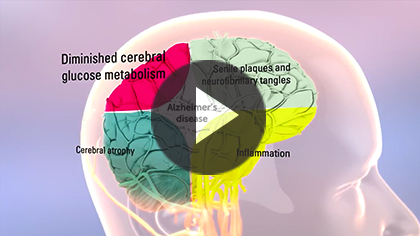Who can provide an Alzheimer’s diagnosis?
A primary care physician or family doctor is one place to start1,2
 According to the Alzheimer’s Association, it is estimated that a skilled doctor can diagnose Alzheimer’s disease with more than 90% accuracy.
According to the Alzheimer’s Association, it is estimated that a skilled doctor can diagnose Alzheimer’s disease with more than 90% accuracy.
That is great news if you are concerned that your loved one is experiencing memory loss, but how do you find a skilled doctor?
Your best bet may be to talk with your primary care physician/family doctor or internist. Some doctors will manage the entire diagnostic process for Alzheimer’s disease, which may include referring you to a neurologist who has specific experience in diagnosing diseases of the brain and the nervous system.
You may be referred to more specialists
Other specialists are commonly consulted to help make an Alzheimer’s disease diagnosis and include mental health professionals, such as psychiatrists, psychologists, or neuropsychologists.
These professionals may be skilled in mood disorders, testing memory, and other mental functions of the brain that can be helpful in diagnosing Alzheimer’s disease.
You are part of the diagnostic process, too
You play an important role in your loved one’s diagnosis. Here are some things you can write down ahead of time. Bring this list with you when you first meet with the doctor:
- What symptoms have you noticed? Try to include the most profound examples of memory lapses or forgetfulness (such as putting the TV remote in the freezer) and when the changes in memory first started
- List all of your loved one’s other medical conditions and the medications he or she is taking. This includes nonprescription drugs, too, such as vitamins or supplements
- Include all of the people in your loved one’s immediate family who have had Alzheimer’s disease or dementia-related memory loss
It may take some time, but once you have an accurate Alzheimer’s disease diagnosis your loved one’s doctor can suggest the best way to treat it. You and the doctor can work together to help ensure that your loved one receives the care he or she needs.
You may also be interested in reading about the symptoms of Alzheimer’s disease.


